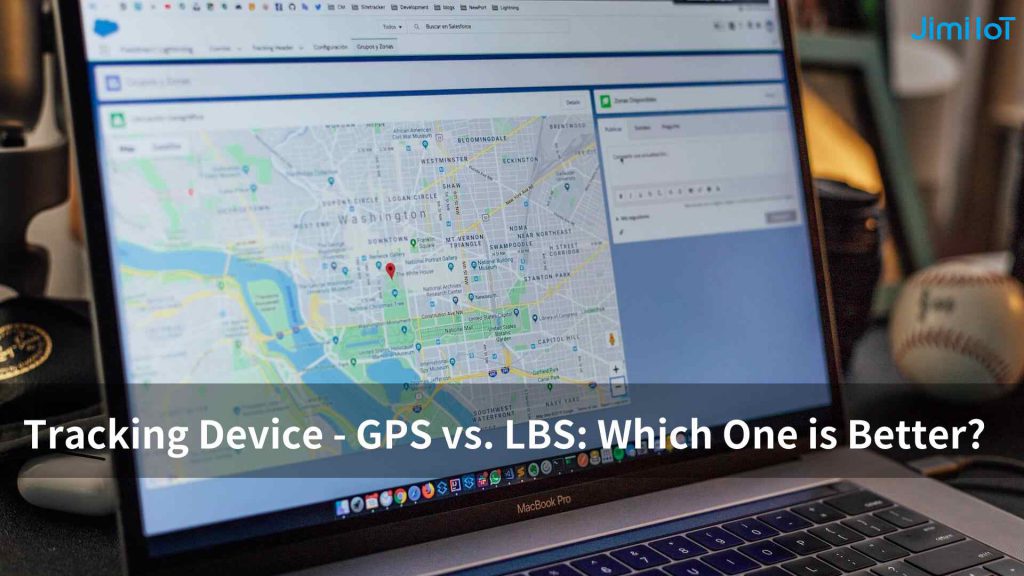When it comes to tracking devices, one question that often comes up is whether GPS or LBS positioning is better. GPS (Global Positioning System) and LBS (Location-Based Services) are both commonly used methods for determining the location of a device, but they have different strengths and weaknesses. In this article, we’ll explore the differences between GPS and LBS positioning, and help you decide which one is better for your needs.

GPS Positioning
GPS is a satellite-based navigation system that can determine the precise location of a device anywhere in the world. GPS relies on a network of satellites orbiting the Earth, and a receiver on the device being tracked to determine its location. GPS is highly accurate, with typical accuracy ranging from 5 to 10 meters, and it can be used anywhere in the world as long as there is a clear view of the sky.
GPS is an ideal solution for outdoor tracking, such as for vehicles or outdoor equipment. It’s also commonly used for tracking pets and people, as well as for sports like hiking, running, and cycling. However, GPS has some limitations that can make it less effective for certain types of tracking.
One limitation of GPS is that it can be affected by external factors, such as tall buildings, trees, and other obstacles that can block the signal from the satellites. This means that GPS may not work as well indoors or in urban environments with tall buildings. Additionally, GPS can be power-hungry, which means that devices with GPS tracking may require frequent charging or have shorter battery life.
LBS Positioning
LBS is a location-based service that uses cellular networks to determine the location of a device. LBS works by using the signal strength of nearby cell towers to triangulate the position of the device. LBS is not as accurate as GPS, with typical accuracy ranging from 50 to 300 meters, but it has some advantages that make it a better solution for certain types of tracking.
LBS is ideal for indoor tracking or in urban environments where GPS may not work as well. It’s also commonly used for tracking people, such as children or elderly individuals, as well as for asset tracking in warehouses or other indoor environments. LBS is also less power-hungry than GPS, which means that devices with LBS tracking may have longer battery life.
GPS vs. LBS: Which One is Better?
The answer to this question depends on the specific needs of the user. GPS is generally better than LBS for outdoor tracking due to its high accuracy, while LBS is better suited for indoor or urban tracking.
Advantages of GPS Positioning
The main advantages of GPS positioning include:
- High accuracy – GPS can provide exact coordinates, making it ideal for tracking objects or people in open spaces.
- Precise location tracking – GPS can track an object’s or person’s movements in real-time, making it easier to monitor their activities and behavior.
- Reliable performance – GPS is a well-established technology that has been used for many years, and its reliability has been proven.
Disadvantages of GPS Positioning
The main disadvantages of GPS positioning include:
- Signal blockage – GPS signals can be blocked by tall buildings, trees, or other obstructions, making it less effective in urban environments.
- Power consumption – GPS tracking devices consume more power than LBS tracking devices, which means they need to be charged more frequently.
- Cost – GPS tracking devices can be more expensive than LBS tracking devices, which may not be feasible for some users.
Advantages of LBS Positioning
The main advantages of LBS positioning include:
- Wider coverage – LBS uses cellular networks to locate objects or people, which means it has wider coverage than GPS. This makes it ideal for urban environments, where signal obstructions are common.
- Lower cost – LBS tracking devices are generally less expensive than GPS tracking devices, which makes them a more affordable option for some users.
- Low power consumption – LBS tracking devices consume less power than GPS tracking devices, which means they need to be charged less frequently.
Disadvantages of LBS Positioning
The main disadvantages of LBS positioning include:
- Lower accuracy – LBS is less accurate than GPS, with location information typically being within a few hundred meters to a few kilometers.
- Limited range – LBS has a limited range compared to GPS, which means it may not be suitable for tracking objects or people over long distances.
- Poor performance in rural areas – LBS coverage is generally weaker in rural areas compared to cities.
Conclusion
In conclusion, both GPS and LBS positioning have their strengths and weaknesses, and the best solution really depends on your specific needs. If you need highly accurate location data for outdoor tracking, then GPS is likely the better solution. However, if you need to track devices indoors or in urban environments, or if you need to track people or assets in a more general area, then LBS may be a better choice. Ultimately, the decision comes down to your specific use case and what you need to track.
Jimi IoT offers a wide range of GPS and LBS tracking devices that are designed to meet different tracking needs. Whether you need to track vehicles or assets, we have a solution that will work for you. Contact us today to learn more about our products and services.
 EN
EN ES
ES PT
PT TH
TH VN
VN JP
JP


